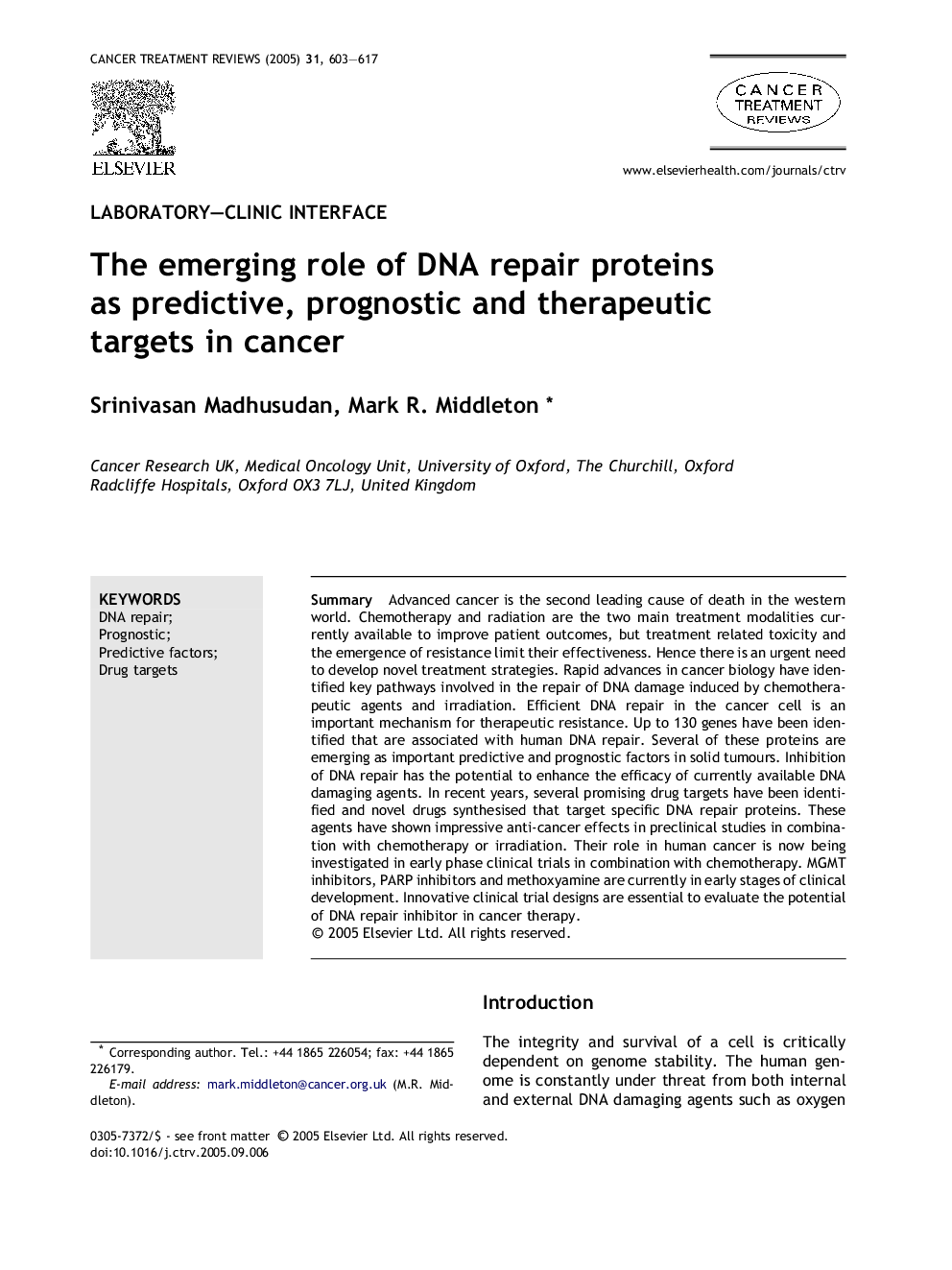| Article ID | Journal | Published Year | Pages | File Type |
|---|---|---|---|---|
| 9336644 | Cancer Treatment Reviews | 2005 | 15 Pages |
Abstract
Advanced cancer is the second leading cause of death in the western world. Chemotherapy and radiation are the two main treatment modalities currently available to improve patient outcomes, but treatment related toxicity and the emergence of resistance limit their effectiveness. Hence there is an urgent need to develop novel treatment strategies. Rapid advances in cancer biology have identified key pathways involved in the repair of DNA damage induced by chemotherapeutic agents and irradiation. Efficient DNA repair in the cancer cell is an important mechanism for therapeutic resistance. Up to 130 genes have been identified that are associated with human DNA repair. Several of these proteins are emerging as important predictive and prognostic factors in solid tumours. Inhibition of DNA repair has the potential to enhance the efficacy of currently available DNA damaging agents. In recent years, several promising drug targets have been identified and novel drugs synthesised that target specific DNA repair proteins. These agents have shown impressive anti-cancer effects in preclinical studies in combination with chemotherapy or irradiation. Their role in human cancer is now being investigated in early phase clinical trials in combination with chemotherapy. MGMT inhibitors, PARP inhibitors and methoxyamine are currently in early stages of clinical development. Innovative clinical trial designs are essential to evaluate the potential of DNA repair inhibitor in cancer therapy.
Related Topics
Health Sciences
Medicine and Dentistry
Oncology
Authors
Srinivasan Madhusudan, Mark R. Middleton,
